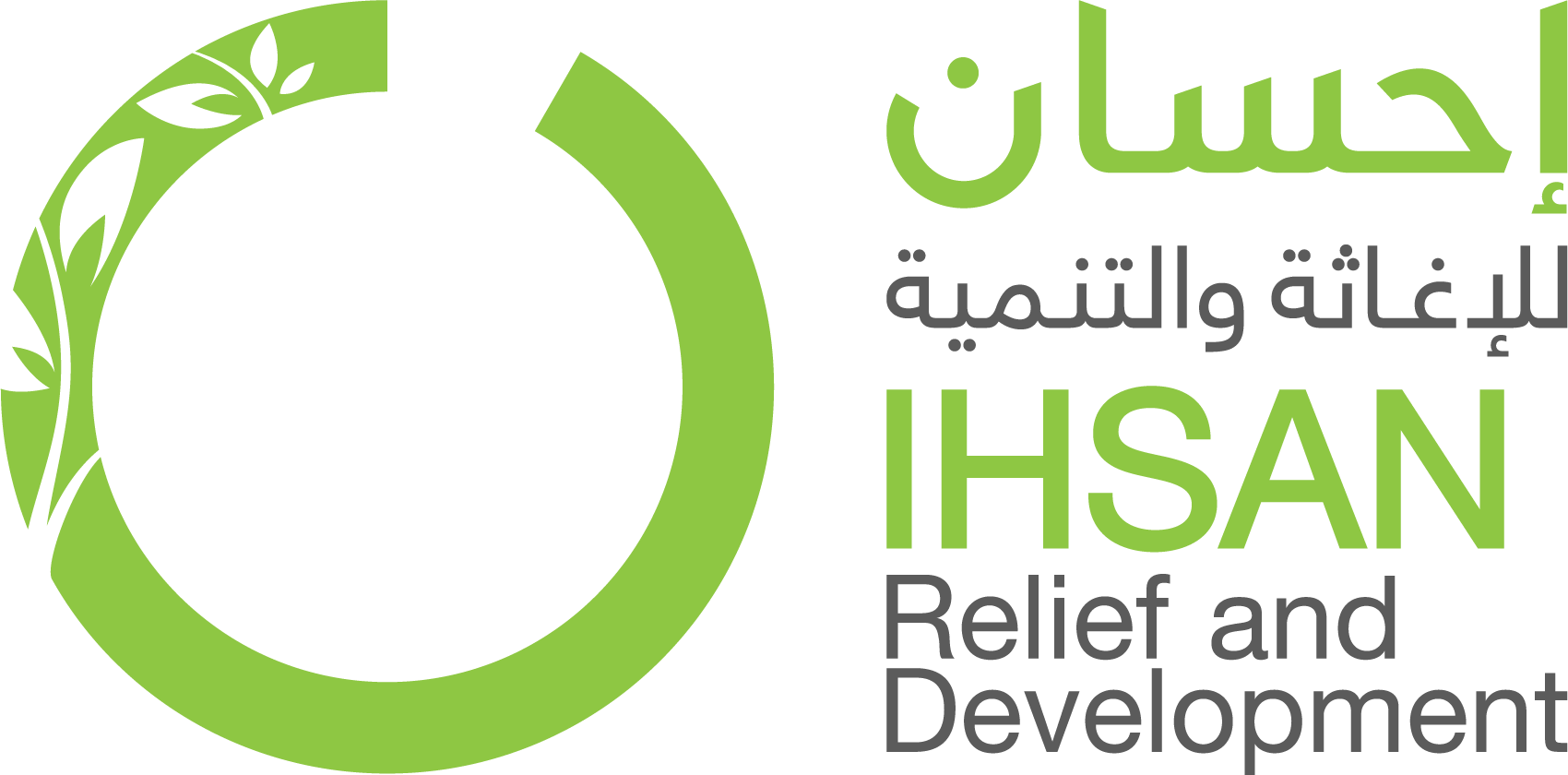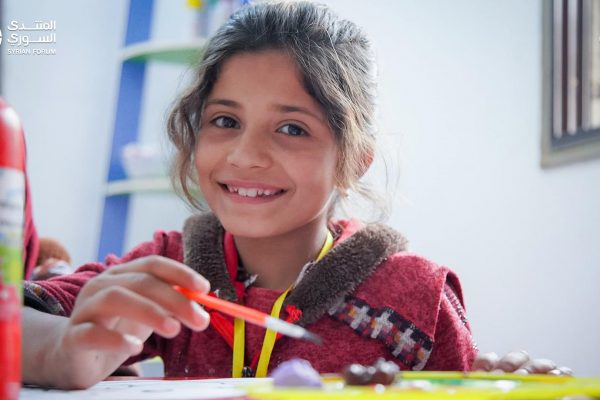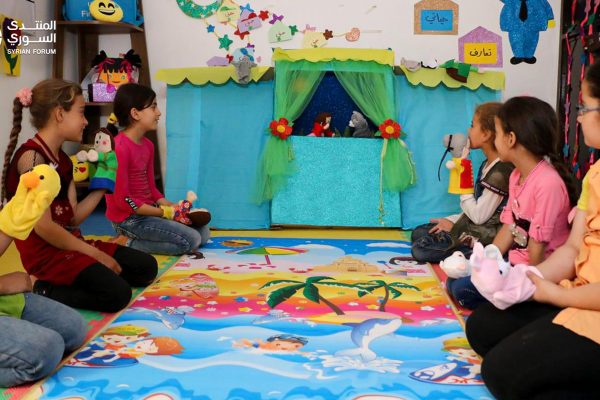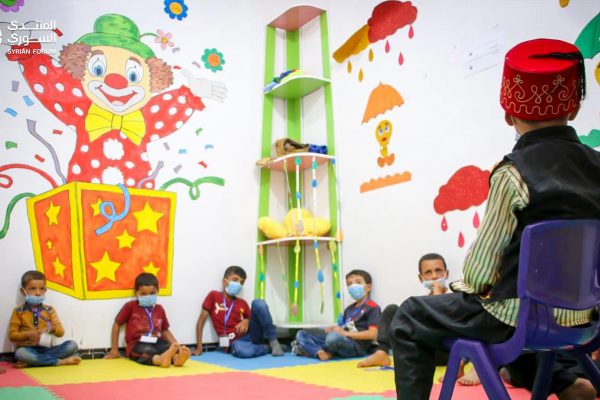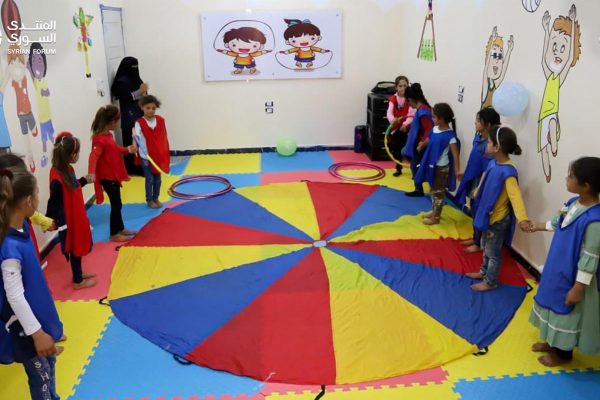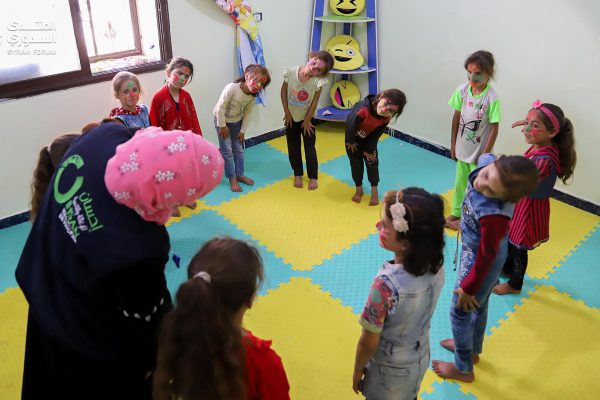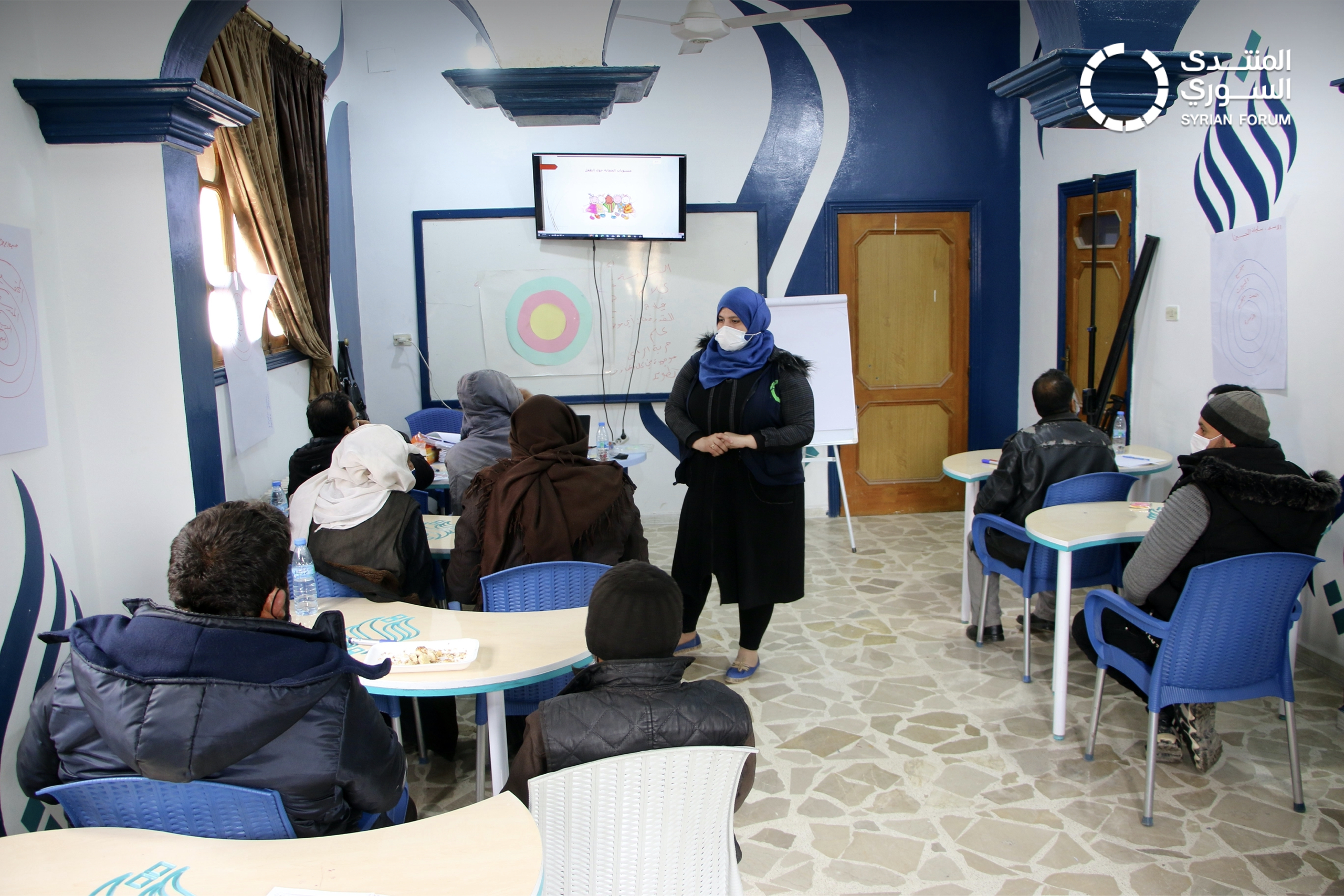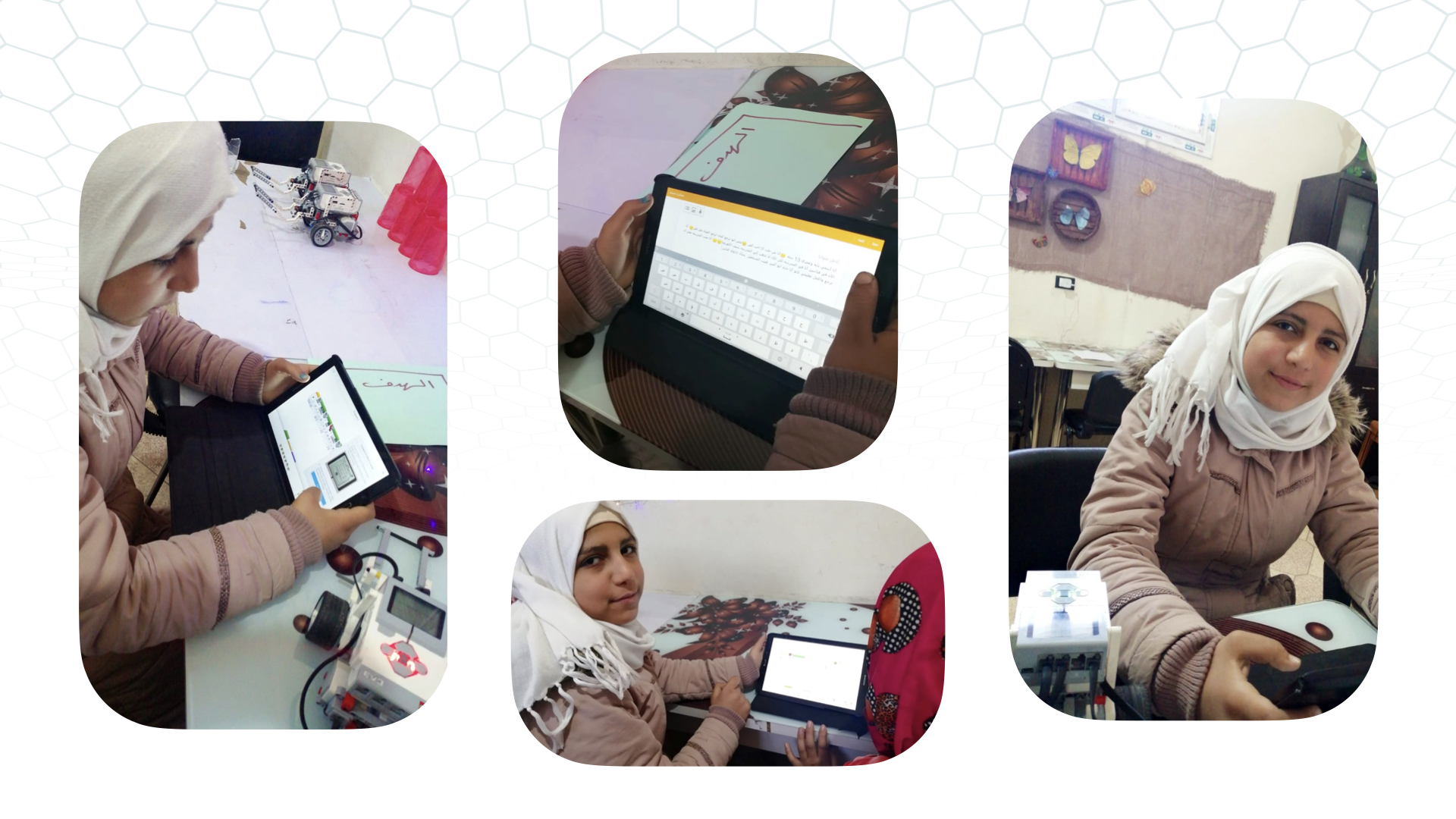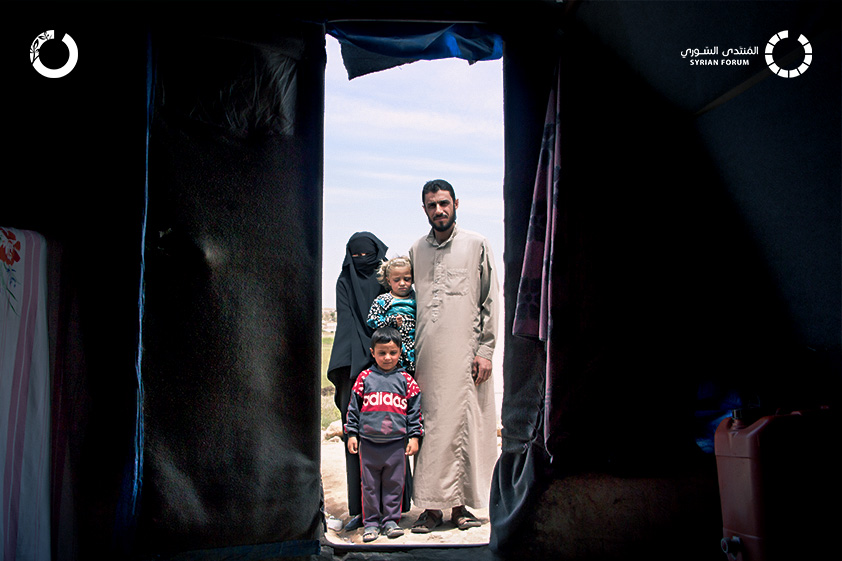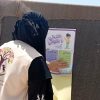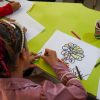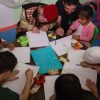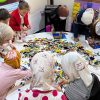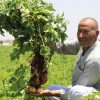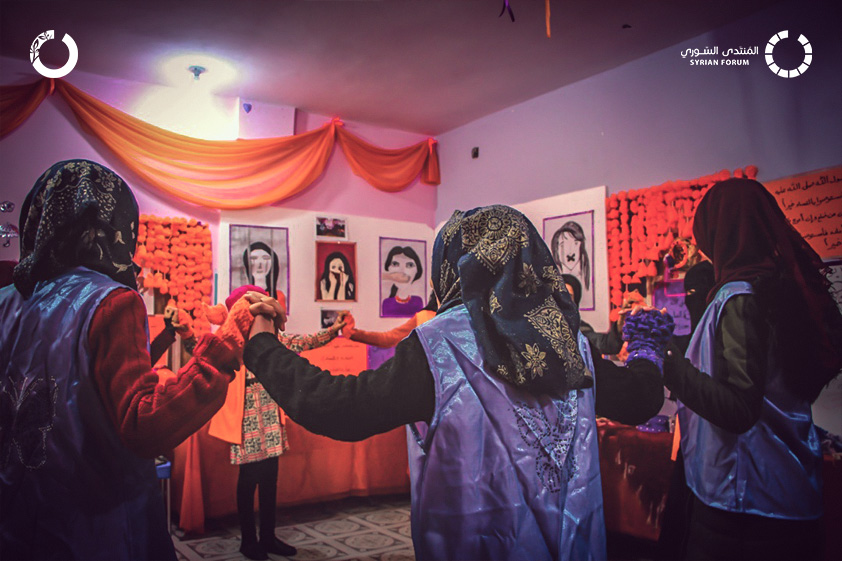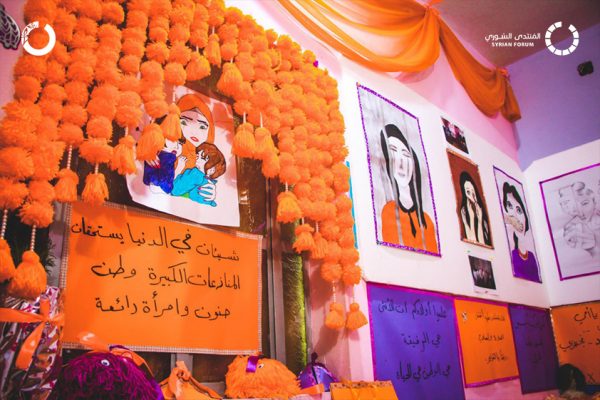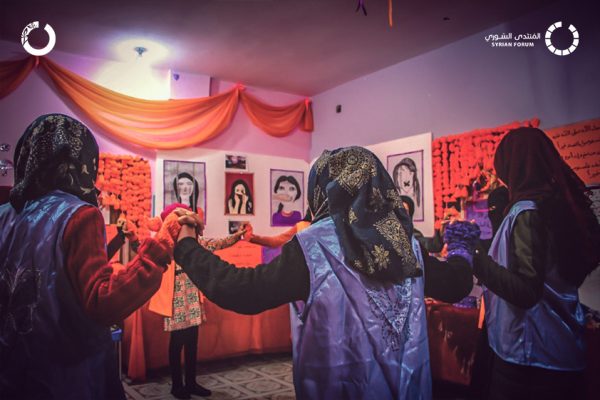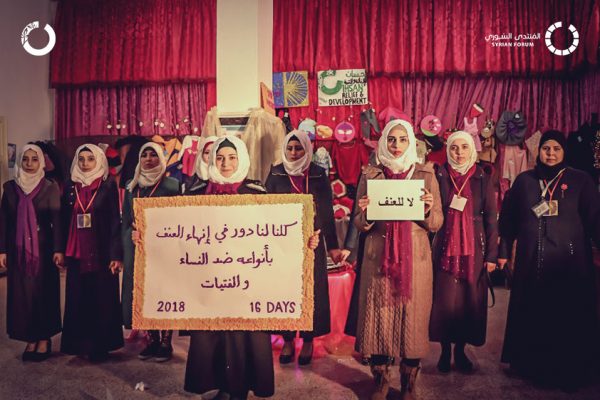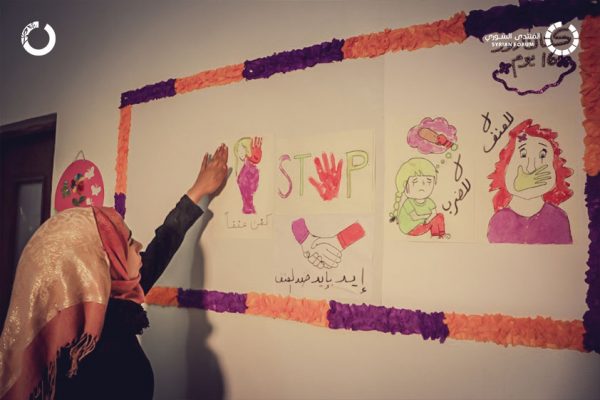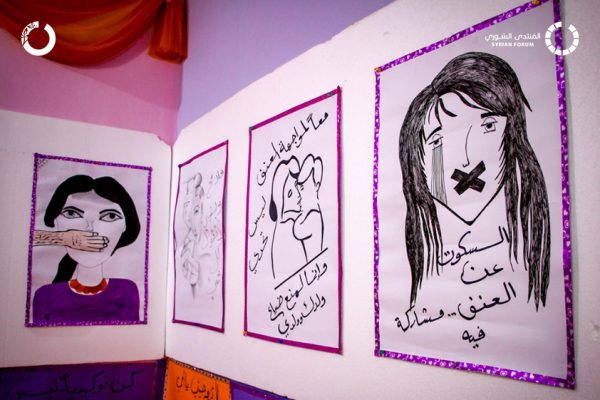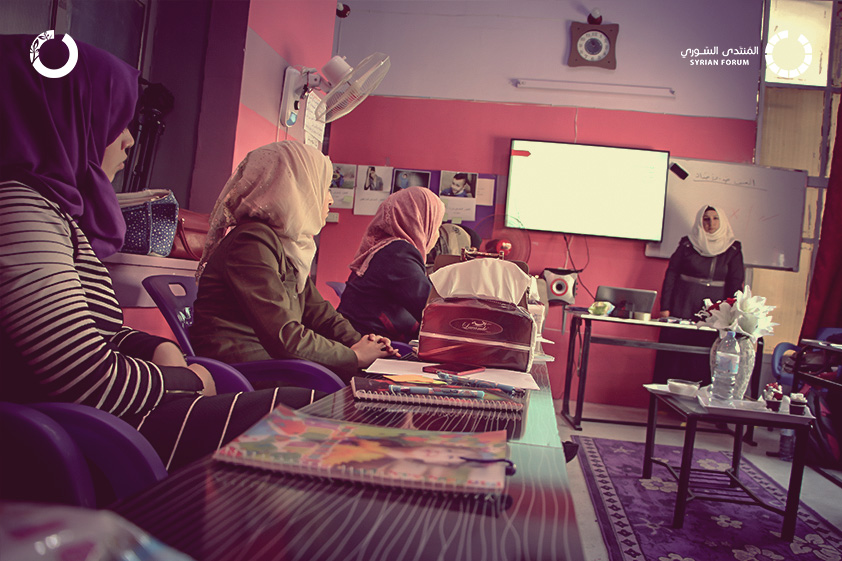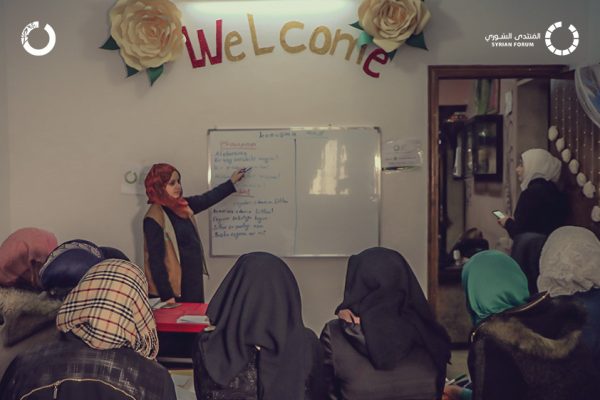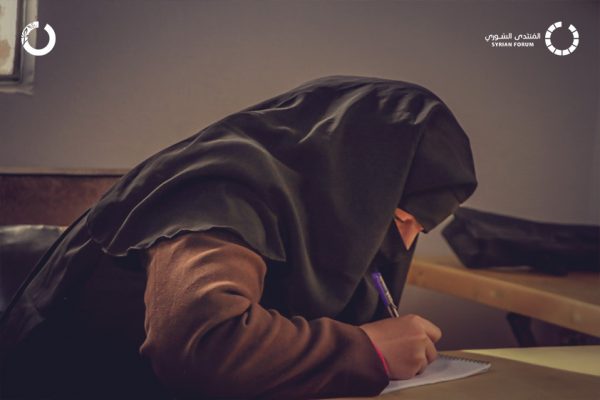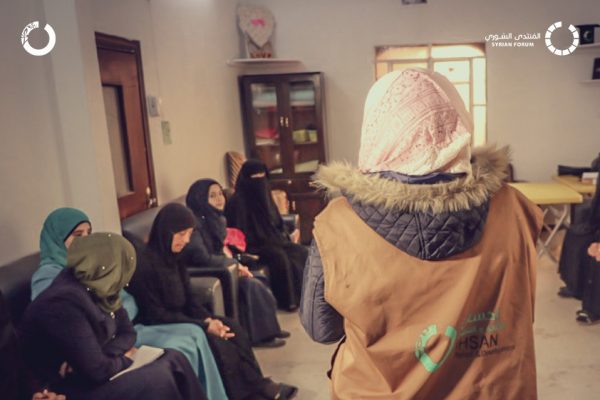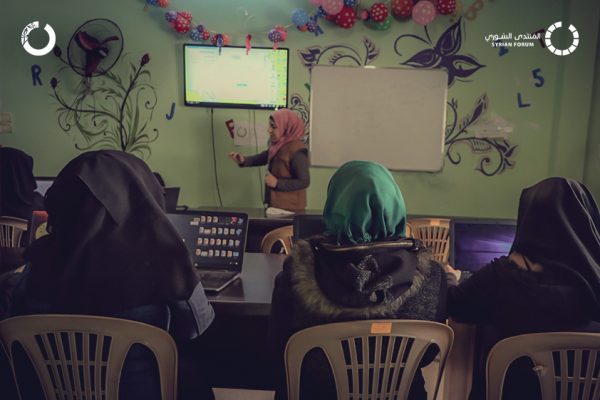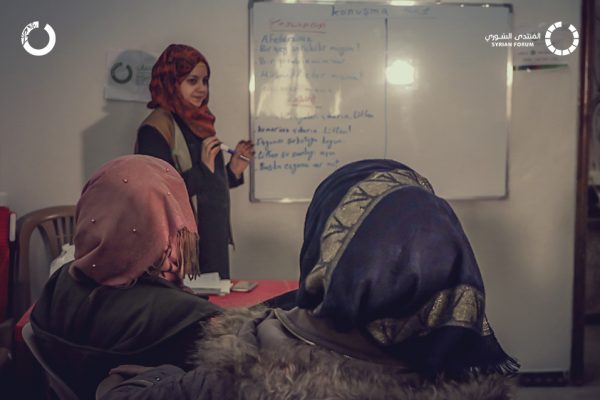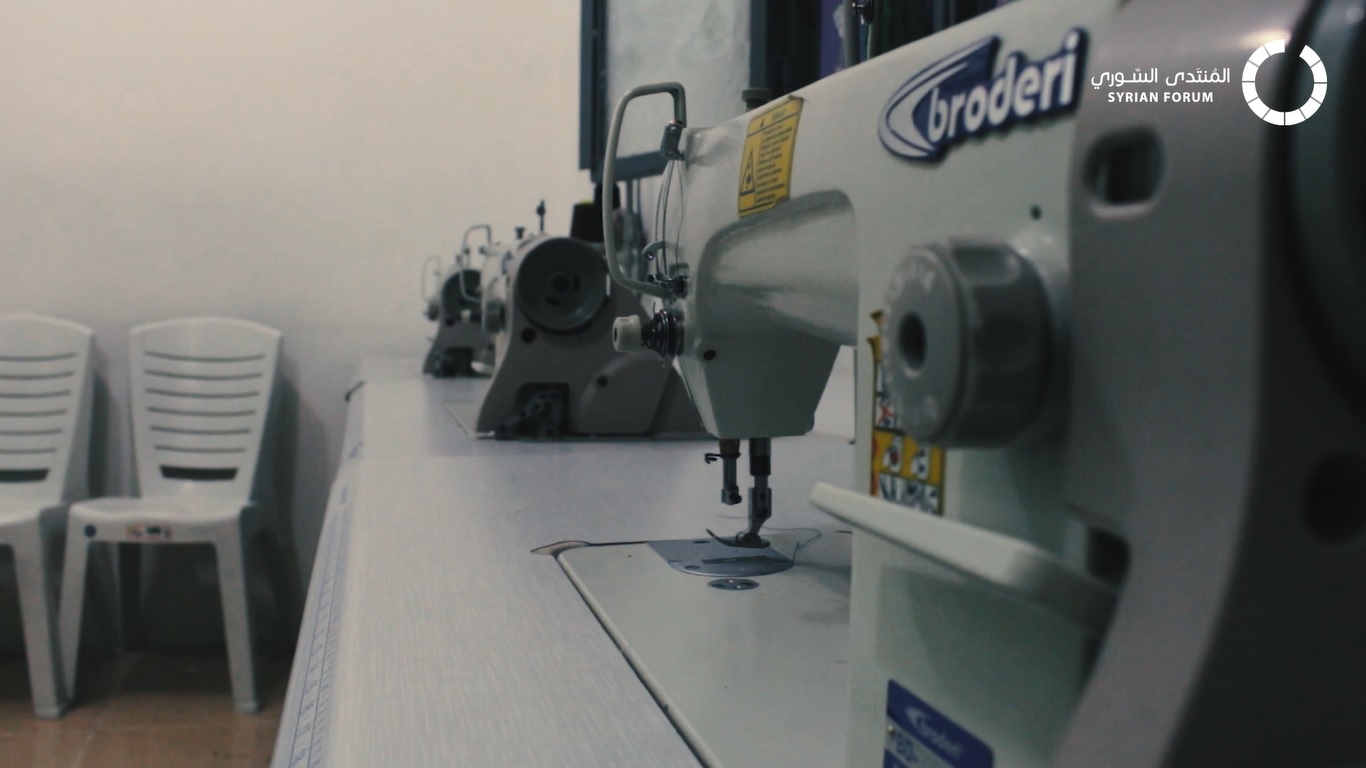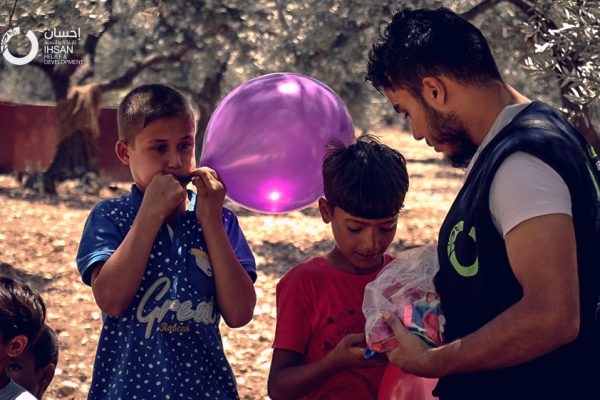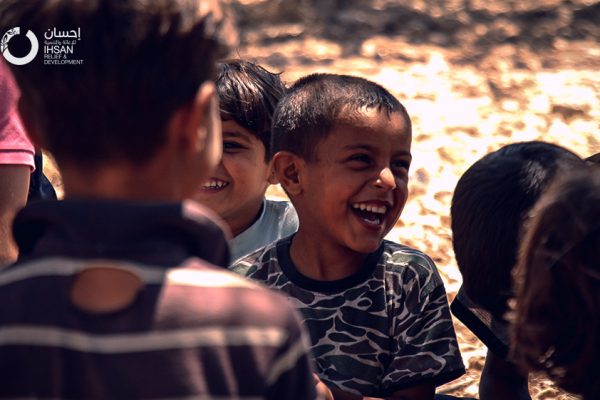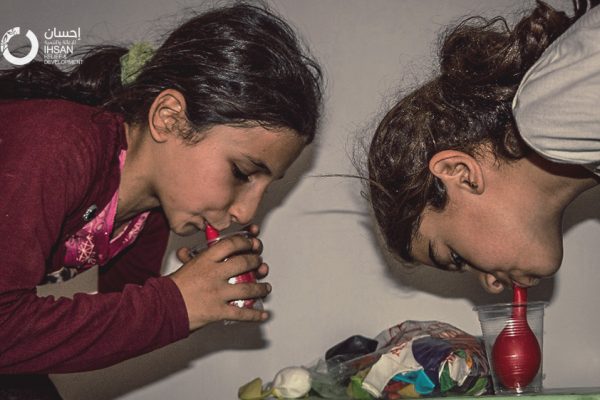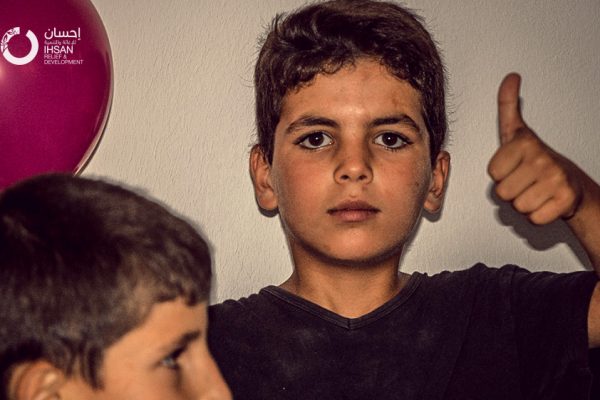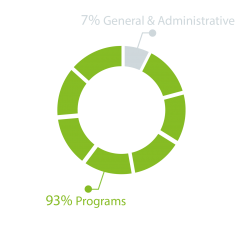Child-friendly spaces are a safe environment to support children’s rights and well-being under emergency circumstances. Through the Protection Sector IhsanRD provides protection to children by creating safe spaces through which they can participate in organized play, adaptation and self-expression activities. The safe spaces raise awareness about risks to children, mobilizes community capacity to begin the process of providing a healthy and safe environment for children, and provides information on the various services and support available in the region.
Children in the shadow of war in Syria
Many children are exposed to different types of violence and exploitation in the context of war. There’s also a lack of support and little effort to provide a safe, supportive, and service environment for children. There is also a lack of general knowledge regarding children’s rights and the types of abuse they are subject to in their communities on a daily basis by social norms, parents, or even peers.
According to a UNICEF report, after 10 years of conflict in Syria, 90% of children are in need of support. The war, economic crisis, and the Covid-19 pandemic are pushing families to the brink.
Child protection programs provide a supportive environment rich with activities and services that help increase children’s level of psychological well-being. Case management services provide them with basic needs that prevent abuse and violence or exploitation in all its forms. These types of services are free and otherwise unavailable in these communities. The safe places also provide psychosocial support services that help provide a child-friendly environment within designated spaces and inform children of their rights and duties towards society.
The importance of child-friendly spaces
There are several reasons why child protection programs in crisis conditions are critical. Children are the most vulnerable groups and their dependence on adults for care weakens them and makes them even more vulnerable.
Displacement, separation from parents or society, loss of a parent or loss of a loved one, as well as the loss of home and property all make children more vulnerable. All of these could threaten a child’s life. A lack of security, safety and reliance on humanitarian assistance means that children are vulnerable to violence, exploitation and abuse. This also makes them more vulnerable to various types of injustice and abuse by caregivers.
The lack of child protection services in crisis conditions including a lack of security, justice and social services may create an environment where children’s rights are violated.
What did we do?
Ihsan Relief and Development has worked to provide activities that can provide a better life for children through its child friendly safe spaces. IhsanRD also has mobile teams and emergency response teams to ensure greater access for affected individuals. IhsanRD has conducted these projects in several geographical areas of Syria, including the Damascus countryside, Homs and its countryside, and the Daraa countryside in 2016. Those projects were discontinued and relocated to northwestern Syria due to the mass displacement from southern Syria in 2018. Nine Youth Empowerment centers, 27 child-friendly centers and more than 40 mobile teams have been opened since then. Services have been provided to more than 328,000 children, case management services to 4,600 children and more than 5,700 caregivers.
IhsanRD’s experiences have led to the conclusion that child protection activities have a positive impact on society, as these activities are designed to target all members of the community (children, caregivers, community members). Each group of beneficiaries has a responsibility to protect children from all types of violations.
